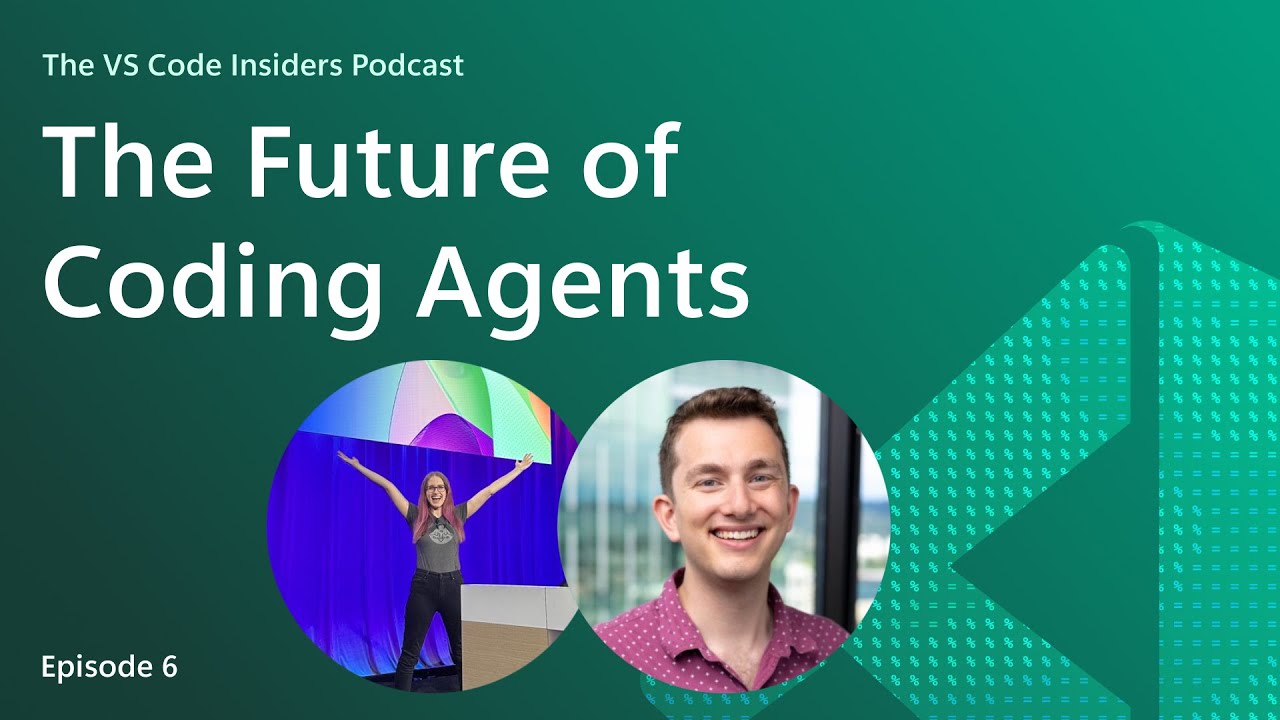In this episode of the VS Code Insiders podcast, Bridget Merrt and Josh Spicer discuss how coding agents in Visual Studio Code operate asynchronously in cloud environments to enhance developer productivity by managing multiple tasks simultaneously with improved context and integration. They also share future plans for deeper extension API integrations to unify workflows within VS Code, encouraging developers to explore and contribute feedback to shape the evolution of these powerful tools.
In this episode of the VS Code Insiders podcast, hosts Bridget Merrt and Josh Spicer from the VS Code team discuss the exciting advancements in coding agents within Visual Studio Code. Bridget, a product manager focusing on co-pilot and coding agent integrations, and Josh, an engineer working on various VS Code features including coding agents, share insights into how these tools are revolutionizing the way developers work. They begin by clarifying what coding agents are and how they differ from the traditional agent mode in VS Code. Unlike agent mode, which runs tasks locally, coding agents operate asynchronously in isolated cloud environments, allowing developers to delegate work and continue with other tasks without interruption.
The conversation highlights the flexibility and variety of workflows enabled by coding agents. Developers can assign issues or tasks to coding agents directly from VS Code, GitHub, or even from to-do comments within their code. This integration allows for multiple coding agents to work on independent tasks simultaneously, increasing productivity. Bridget and Josh emphasize the importance of context when delegating tasks, recommending the use of “ask mode” to have detailed conversations with co-pilot to ensure the agent fully understands the task before starting work. This approach leads to more successful outcomes, especially for complex or vague issues.
They also discuss the evolving user experience around coding agents, noting that early implementations were basic but recent updates have introduced richer integrations within VS Code. These include new extension APIs that allow tighter integration with native chat widgets and better session management, making it easier for developers to monitor and interact with coding agents as they work. Users can now view ongoing sessions, review pull requests created by agents, and even push local changes to provide agents with more context, creating a seamless and interactive development experience.
Looking ahead, Bridget and Josh share their vision for the future of coding agents in VS Code. They are working on expanding extension APIs to enable any extension with a coding agent to integrate deeply with VS Code, unifying workflows and reducing the need to switch between multiple tools or browsers. This will help maintain a tight developer loop where tasks and subtasks can be managed efficiently within a single environment. They encourage developers to try out the latest features by enabling new settings in VS Code and providing feedback to help shape the ongoing development of these tools.
The episode concludes with a call to action for developers to explore the current capabilities of coding agents and participate in the evolution of this technology by sharing their experiences. Bridget and Josh express excitement about the collaborative nature of working alongside coding agents, highlighting how these tools enable multiple workstreams to run concurrently, effectively augmenting developers’ productivity. The hosts thank their guests and invite listeners to subscribe to the podcast and stay tuned for future updates on VS Code innovations.
